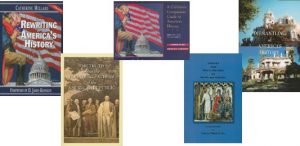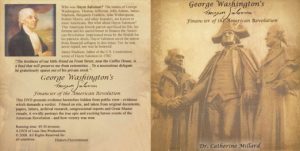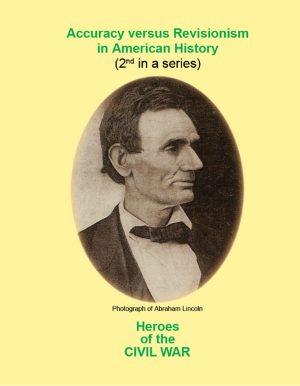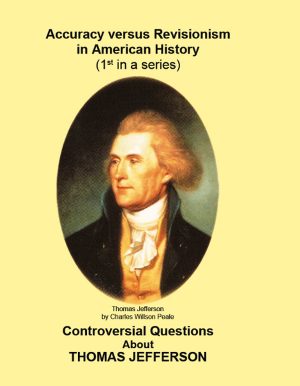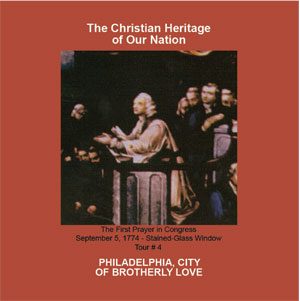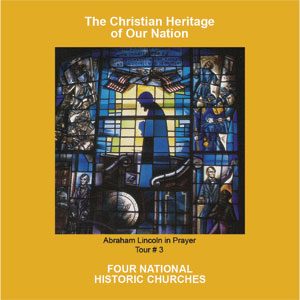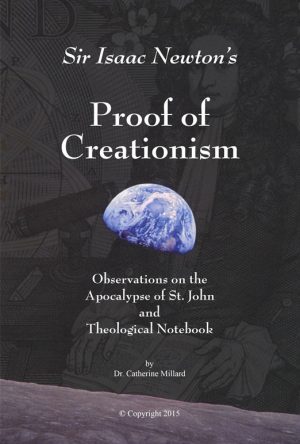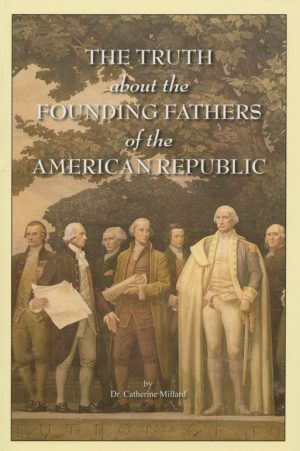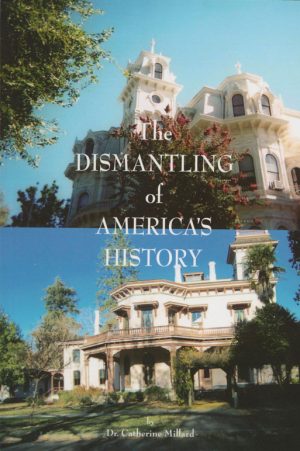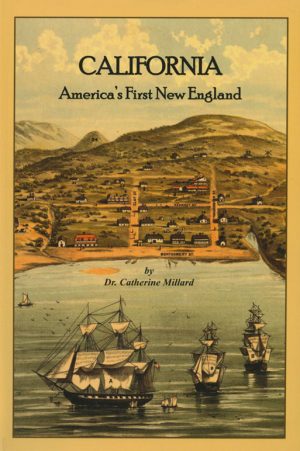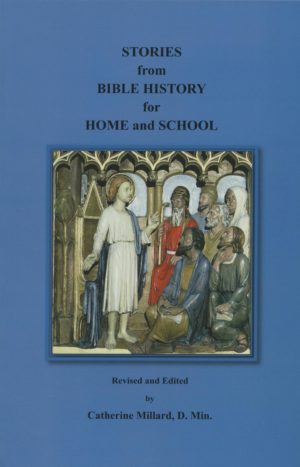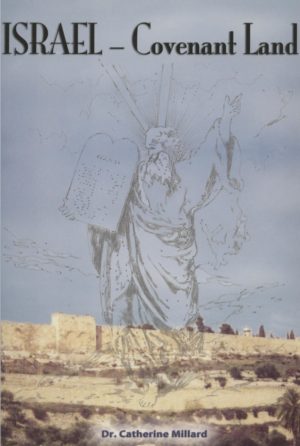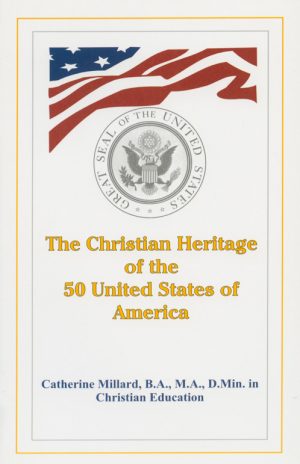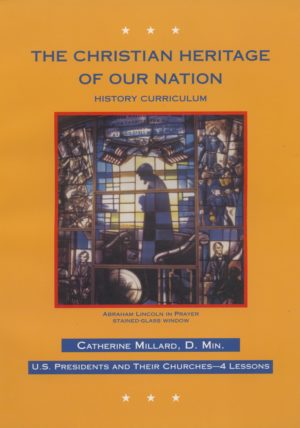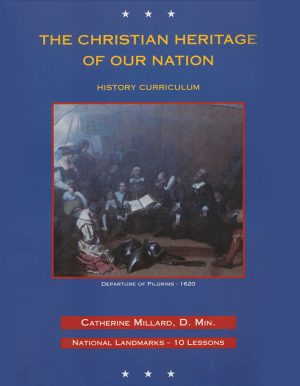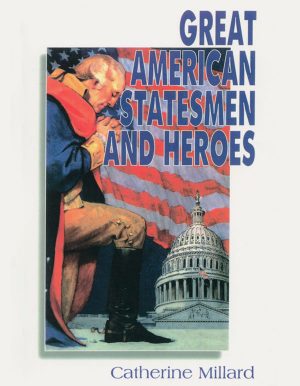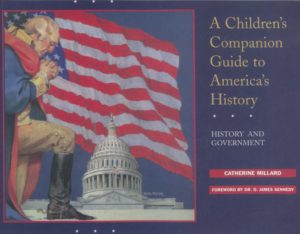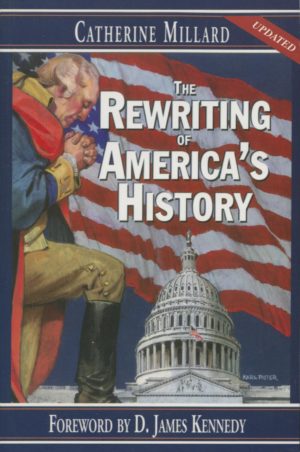(Excerpted)
London: The Protestant Literature Depository,1886.
From, The Library of Congress, Rare Book Collection
…The following act of excommunication was nailed on the door of the chapel:
The Reverend Monsieur Chiniquy, heretofore curate of St. Anne, Colony of Beaver, in the Diocese of Chicago, has formally been interdicted by me for canonical causes. The said Mr. Chiniquy, notwithstanding that interdict, has maliciously performed the functions of the holy ministry, in administrating the holy sacraments and saying mass. This has caused him to be irregular, and in direct opposition to the authority of the Church, consequently, he is a schismatic. The said Mr. Chiniquy, thus named by my letters and verbal injunction, has absolutely persisted in violating the laws of the Church, and disobeyed her authority, and is by this present letter excommunicated. I forbid any Catholic having any communication with him, in spiritual matters, under pain of excommunication. Every Catholic who goes against this suspense, is excommunicated.”
(signed) ANTHONY,
Bishop of Chicago, and administrator of Quincy.
Sept. 3rd., 1856
The people understood very well that the whole affair was a miserable farce, designed to separate them from their pastor. By the good providence of God, it had just the contrary effect. They had never shown me such sincere respect and devotedness as since that never-to-be-forgotten day.
The people gathered from every part of our colony into the large hall of the court house of Kankakee City to hear several addresses on their duties of the day, and they unanimously passed the following resolution:
“Resolved, – That we, French Canadians of the County of Kankakee, do hereby decide to give our moral support to Rev. C. Chiniquy, in the persecution now exerted against him by the Bishop of Chicago, in violation of the laws of the Church, expressed and sanctioned by the Councils.”
They gathered in an immense public meeting on the Sabbath after the sham excommunication, to adopt the following address to the Bishop of Chicago, a copy of which was sent to every bishop of the United States and Canada, and to Pope Pius IX:
“TO HIS LORDSHIP, ANTHONY O’REGAN OF CHICAGO: We, the undersigned, inhabitants of the parish of St. Anne, Beaver settlement, seeing with sorrow that you have discarded our humble request, which we have sent to you by the four delegates, and have persisted in trying to drive away our honest and worthy priest, who has edified us in all circumstances by his public and religious conduct, and having, contrary to the rules of our holy Church and common sense, struck our worthy pastor, Mr. Chiniquy, with excommunication, having caused him to be announced as a schismatic priest, and having forbidden us to communicate with him in religious matters, are hereby protesting against the unjust and iniquitous manner in which you have struck him, refusing him the privilege of justifying himself and proving his innocence. Consequently, we declare that we are ready at all times as good Catholics, to obey all your orders and ordinances that are in accordance with the laws of the Gospel and the Church, but that we are not willing to follow you in all your errors of judgments, in your injustices and covetous caprices. Considering Mr. Chiniquy as a good and virtuous priest, we have unanimously decided to keep him among us as our pastor; therefore praying your lordship not to put yourself to the trouble of seeing another priest for us. More yet; we have unanimously decided to sustain him and furnish him the means to go as far as Rome, if he cannot have justice in America.
We further declare that it has been dishonorable and shameful for our bishop and for our holy religion to have seen, coming under the walls of our chapel, bringing the orders of the prince of the Church, a representative of Christ, three men covered with their sacerdotal garments, having their tongues half paralyzed by the effect of whiskey, and who, turning their backs to the Church, went to the house and barn of one of our settlers and there emptied their bottles. And from there, taking their seats in the buggies, went toward the settlement of l’Erable, singing drunken songs and hallooing like wild Indians. Will your lordship be influenced by such a set of men, who seem to have for their mission to degrade the priesthood and Catholicism?
We conclude, hoping that, changing your determination, you will work to the welfare of our holy religion, and not to its degradation, into which your intolerant conduct would lead us, and that you will not persist in trying to drive our worthy pastor, Rev. Charles Chiniquy, from the flourishing colony that he has founded at the cost of the abandonment of his native land, of the sacrifice of the high position he had in Canada; that you will bring peace between you and us, that we shall have in the Bishop of Chicago not a tyrant, but a father, and that you will have in us not rebels, but faithful children. Subscribing ourselves the obedient children of the Church.
THEODORE DORIEN,
DET. VANIER,
J.B. BELANGER
CAMILE BETOURNEY
STAN’LAS GAGNE
ANTOINE ALLAIN
J.B. LEMOINE, N.P.
OLIVER SENECHALL
BASILIQUE ALLAIR
MICHEL ALLAIR
JOSEPH GRISI
JOSEPH ALLARD
and five hundred others.”
This with very few exceptions, the press of the state of Illinois, whose columns had so often echoed the cries of indignation raised everywhere against the tyranny of Bishop O’Regan, took sides with me. Hundreds of priests, not only from Illinois, but from every corner of the United States, addressed their warmest thanks to me for the stand I had taken, and asked me, in the name of God and for the honor of the Church, not to yield an inch of my rights.
However, this did not disturb me, my trust was not in my own strength, but in His protection. I was sure that I was in the right, that the Gospel of Christ was on my side, that all the canons and laws of the councils were in my favor. My library was filled with the best books on the canons and laws passed in the great councils of my Church and all stood in agreement with the course I had taken…
When an hour of opening the court came, there was an immense crowd, not only inside, but outside its walls. Mr. Spink, pale as a man condemned to death, rose before the judge and said: “Please the court, allow me to withdraw my prosecution against Mr. Chiniquy. I am now persuaded that he is not guilty of the faults brought against him before this tribunal.
Abraham Lincoln, having accepted that reparation in my name, made a short, but one of the most admirable speeches I have ever heard, on the cruel injustices I had suffered from my merciless persecutors. His terrible denouncement of the rascality of the priests who had perjured themselves proved how wise they had been to fly away and disappear before the opening of the court, for the whole city was ransacked for them by hundreds who blamed me for forgiving them and refusing to have my revenge for the wrong they had done me. But I really thought that my enemies were sufficiently punished by the awful public disclosures of their infernal plot. It seemed that the dear Saviour, who had so visibly protected me, was to be obeyed, when He was whispering in my soul, “Forgive them and love them as thyself…”
Abraham Lincoln had not only defended me with the zeal and talent of the ablest lawyer I have ever known, but as the most devoted and best friend I ever had. After pleading during two long sessions of the court of Urbana, without receiving a cent from me, I considered that I was owing him a great sum of money. My two other lawyers, who had not done the half of his work, asked me a thousand dollars each, and I had not thought that too much. After thanking him for the inappreciable services he had rendered me, I requested him to show me his bill, assuring him that, though I would not be able to pay the whole cash, I would pay him to the last cent, if he had the kindness to wait a little for the balance.
He answered me with a smile and an air of inimitable kindness, which was peculiar to him: “My dear Mr. Chiniquy, I feel proud and honored to have been called to defend you. But I have done it less as a lawyer than as a friend. The money I should receive from you would take away the pleasure I feel at having fought your battle. Your case is unique in my whole practice. I have never met a man so cruelly persecuted as you have been, and who deserves it so little. Your enemies are devils incarnate. The plot they had concocted against you is the most hellish one I ever knew. But the way you have been saved from their hands, the appearance of that young and intelligent person, who was really sent by God in the very hour of need, when, I confess it again, I thought everything was nearly lost, is one of the most extraordinary occurrences I ever saw. It makes me remember what I have too often forgotten, and what my mother often told me when young – that our God is a prayer-hearing God. This good thought, sown into my young heart by that dear mother’s hand, was just in my mind when I told you, ‘Go and pray, God alone can save you.’ But I confess to you that I had not faith enough to believe that your prayer would be so quickly and so marvelously answered. Now let us speak of what you owe me. Well! Well! How much do you owe me? You owe me nothing! for I suppose you are quite ruined. The expense of such a suit, I know, must be enormous. Your enemies want to ruin you. Will I help them to finish your ruin, when I hope I have the right to be put among the most sincere and devoted of your friends?”
“You are right,” I answered him, “you are the most devoted and noblest friend God ever gave to me, and I am nearly ruined by my enemies. But you are the father of a pretty large family; you must support them. Your traveling expenses in coming twice here from Springfield; your hotel bills during the two terms you have defended me, must be very considerable. It is not just that you should receive nothing in return for such work and expenses.”
Well! well! he answered, “I will give you a promissory note which you will sign.” Taking then a small piece of paper, he wrote:
Urbana, May 23, 1857,
Due A. Lincoln
fifty dollars,
for value received
(signed)
He handed me the note, saying, “Can you sign that?”
After reading it, I said, “Dear Mr. Lincoln, this is a joke. It is not possible that you ask only fifty dollars for services which are worth at least two thousand dollars.”
He then tapped me with the right hand on the shoulder and said: “Sign that; it is enough.”
The relaxation of the great strain upon my mind, and the great kindness of my benefactor and defender in charging me so little for such a service, and the terrible presentiment that he would pay with his life what he had done for me caused me to break into sobs and tears.
“Father Chiniquy, what are you crying for?”
“Dear Mr. Lincoln,” I answered, “allow me to tell you that the joy I should naturally feel for such a victory is destroyed in my mind by the fear of what it may cost you. There were in the court not less than ten or twelve Jesuits from Chicago and St. Louis, who came to hear my sentence of condemnation to the penitentiary. But it was on their heads that you have brought the thunders of heaven and earth! Nothing can be compared to the expression of their rage against you, when you not only wrenched me from their cruel hands, but you were making the walls of the courthouse tremble under the awful and superhumanly eloquent denunciation of their infamy, diabolical malice, and total want of Christian and human principle, in the plot they had formed for my destruction. What troubles my soul just now and draws my tears, is that it seems to me that I have read your sentence of death in their fiendish eyes. How many other noble victims have already fallen at their feet!”
He tried to divert my mind, at first, with a joke, “Sign this,” said he, “It will be my warrant of death.”
But after I had signed, he became more solemn, and said, “I know that Jesuits never forget nor forsake. But man must not care how and where he dies, provided he dies at the post of honor and duty,” and he left me…
(page 300)…President Abraham Lincoln stated: The Mormon and the Jesuit priests are equally the uncompromising enemies of our Constitution and our laws; but the more dangerous of the two is the Jesuitthe Romish priest, for he knows better how to conceal his hatred under the mask of friendship and a public good; he is better trained to commit the most cruel and diabolical deeds for the glory of God.
Till lately, I was in favor of the unlimited liberty of conscience as our Constitution gives it to the Roman Catholics. But now, it seems to me that, sooner or later, the people will be forced to put a restriction to that clause towards the papists. Is it not an act of folly to give absolute liberty of conscience to a set of men who are publicly sworn to cut our throats the very day they have the opportunity? Is it right to give the privilege of citizenship to men who are sworn and public enemies of our Constitution, our laws, our liberties, and our lives?…
Is it not an absurdity to give to a man a thing which he has sworn to hate, curse, and destroy? And does not the Catholic Church of Rome hate, curse, and destroy liberty of conscience whenever she can do it safely? I am for liberty of conscience in its noblest, broadest, highest sense. But I cannot give liberty of conscience to the pope and to his followers, the papists, so long as they tell me, through all their councils, theologians, and canon laws, that their conscience orders them to burn my wife, strangle my children, and cut my throat when they find their opportunity! This does not seem to be understood by the people today. But sooner or later, the light of common sense will make it clear to every one that no liberty of conscience can be granted to men who are sworn to obey a pope, who pretends to have the right to put to death those who differ from him in religion.
You are not the first to warn me against the dangers of assassination. My ambassadors in Italy, France, and England, as well as Professor Morse, have many times warned me against the plots of the murderers which they have detected in those different countries. But I see no other safeguard against those murderers but to be always ready to die, as Christ advises it. As we must all die sooner or later, it makes very little difference to me whether I die from a dagger plunged through my heart or from an inflammation of the lungs. Let me tell you I have lately read a passage in the Old Testament which had made a profound, and, I hope, a salutary impression on me. Here is that passage.”
The president took his Bible, opened it at the third chapter of Deuteronomy, and read from the 22nd to the 28th verse:
“Ye shall not fear them: for the Lord your God He shall fight for you. And I besought the Lord at that time, saying, O Lord God, Thou hast begun to show Thy servant Thy greatness and Thy mighty hand; for what God is there, in heaven or in earth, that can do according to Thy words, and according to Thy might! I pray Thee, Let me go over, and see the good land that is beyond Jordan, that goodly mountain, and Lebanon. But the Lord was wroth with me for your sakes, and would not hear me: and the Lord said unto me, Let it suffice thee: speak no more unto Me of this matter. Get thee up into the top of Pisgah, and lift up thine eyes westward, and northward, and southward, and eastward, and behold it with thine eyes: for thou shalt not go over this Jordan.”
After the President had read these words with great solemnity, he added: “My dear Father Chiniquy, let me tell you that I have read these strange and beautiful verses several times these last five or six weeks. The more I read them, the more it seems to me that God has written them for me as well as Moses. Has He not taken me from my poor log cabin by the hand, as He did Moses in the reeds of the Nile, to put me at the head of the greatest and the most blessed of modern nations, just as He put that prophet at the head of the most blessed nation of ancient times? Has not God granted me a privilege which was not granted to any living man when I broke the fetters of 4,000,000 of men and made them free? Has not our God given me the most glorious victories over our enemies?…
Now, I see the end of this terrible conflict, with the same joy of Moses at the end of his forty years in wilderness. I pray my God to grant me to see the days of peace, and untold prosperity, which will follow this cruel war, as Moses asked God to see the other side of Jordan and enter the Promised Land. But do you know that I hear in my soul, as the voice of God, giving me the rebuke which was given to Moses? Yes! every time that my soul goes to God to ask the favor of seeing the other side of Jordan, and eating the fruits of that peace, after which I am longing with such an unspeakable desire, do you know that there is a still, but solemn voice, which tells me that I will see those things, only from a long distance, and that I will be among the dead, when the nation which God granted me to lead through those awful trials, will cross the Jordan, and dwell in that Land of Promise, where peace, industry, happiness, and liberty, will make every one happy; and why so? Because He has already given me favors which He never gave, I dare say, to any man, in these latter days…
So many plots have already been made against my life, that it is a real miracle that they have all failed, when we consider that the great majority of them were in the hands of the skillful Roman Catholic murderers, evidently trained by Jesuits. But can we expect that God will make a perpetual miracle to save my life? I believe not. The Jesuits are so expert in those deeds of blood, that Henry IV said that it was impossible to escape them, and he became their victim, though he did all that could be done to protect himself…But just as the Lord heard no murmur from the lips of Moses when He told him that he had to die, before crossing the Jordan, for the sins of his people; so I hope and pray that He will hear no murmur from me when I fall for my nation’s sake.
The only two favors I ask of the Lord are, first, that I may die for the sacred cause in which I am engaged, and when I am the standard bearer of the rights and liberties of my country.
The second favor I ask of God is, that my dear son, Robert, when I am gone, will be one of those who lift up that flag of liberty which will cover my tomb, and carry it with honor and fidelity, to the end of his life, as his father did, surrounded by the millions who will be called with him to fight and die for the defense and honor of our country.”
Never had I heard such sublime words. Never had I seen a human face so solemn and so prophet-like as the face of the president, when uttering these things. I was beside myself. Bathed in tears, I tried to say something, but I could not utter a word.
I knew the hour to leave had come, I asked from the president permission to fall on my knees, and pray with him that his life might be spared; and he knelt with me. But I prayed more with tears and sobs, than with words. Then I pressed his hand on my lips and bathed it with my tears and with a heart filled with an unspeakable desolation, I bade him adieu! It was for the last time!
The hour was fast approaching when he was to fall by the hands of a Jesuit assassin, for his nation’s sake.
Every time I met President Lincoln I wondered how such elevation of thought and such childish simplicity could be found in the same man. After my interviews with him many times, I said to myself: “How can this rail-splitter have so easily raised himself to the highest range of human thought and philosophy?”
The secret was that Lincoln had spent a great part of his life at the school of Christ, and that he meditated His sublime teachings to an extent unsuspected by the world. I found in him the most perfect type of Christianity I ever met. Professedly, he was neither a strict Presbyterian, nor a Baptist, nor a Methodist: but he was the embodiment of all which is more perfect and Christian in them. His religion was the very essence of what God wants in man. It was from Christ Himself he had learned to love God and his neighbor, as it was from Christ he had learned the dignity and the value of man. “Ye are all brethren, the children of God,” was his great motto.
It was from the Gospel that he had learned his principles of equality, fraternity, and liberty, as it was from the Gospel he had learned that sublime, childish simplicity which, alone, and forever, won the admiration and affection of all. I could cite many facts to illustrate this, but I will give only one taken from the Memoirs of Mr. Bateman, Superintendent of Public Instruction for the State of Illinois.
“Mr. Lincoln paused for long minutes, his features surcharged with emotion. Then he rose and walked up and down the reception room, in the effort to retain or regain his self-possession. Stopping at last, he said, with a trembling voice and his cheeks wet with tears: ‘I know there is a God, and that He hates injustice and slavery. I see the storm coming, and I know that His hand is in it. If He has a place and work for me, and I think He has, I believe I am ready! I am nothing, but truth is everything! I know I am right, because I know that liberty is right: for Christ teaches it, and Christ is God.
I have told them that a house divided against itself cannot stand, and Christ and reason say the same thing. Douglas does not care whether slavery is voted up or down. But God cares, and humanity cares, and I care. And with God’s help, I will not fail. I may not see the end, but it will come, and I shall be syndicated; and those men will see that they have not read their Bible right! Does it not appear strange that men can ignore the moral aspect of this contest? A revelation could not make it plainer to me that slavery, or the government, must be destroyed. The future would be something awful, as I look at it, but for this ROCK on which I stand (alluding to the Gospel Book he still held in his hand). It seems as if God had borne with slavery until the very teachers of religion had come to defend it from the Bible, and to claim for it a Divine character and sanction. And now the cup of iniquity is full, and the vials of wrath will be poured out.”
Mr. Bateman adds: “After this, the conversation was continued for a long time. Everything he said was of a very deep, tender, and religious tone, and all was tinged with a touching melancholy. After further reference to a belief in Divine Providence, and the fact of God in history, the conversation turned upon prayer. He freely stated his belief in the duty, privilege, an efficacy of prayer; and he intimated, in no unmistakable terms, that he had sought, in that way, the divine guidance and favor…”
More than once I felt as if I were in the presence of an old prophet, when listening to his views about the future destinies of the United States…
(page 308)…After I had mixed my tears with those of the grand country of my adoption, I fell on my knees and asked my God to grant me to show to the world what I knew to be the truth, that that horrible crime was the work of popery. And, after twenty years of constant and most difficult researches, I come fearlessly today before the American people, to say and prove that the president, Abraham Lincoln, was assassinated by the priests and Jesuits of Rome.
In the book of the testimonies given in the prosecution of the assassin of Lincoln, published by Ben Pitman, and in the two volumes of the trial of John Surratt, in 1867, we have the legal and irrefutable proof that the plot of the assassins of Lincoln was matured, if not started, in the house of Mary Surratt, 561 H Street, Washington, D.C. The sworn testimonies show that it was the common rendezvous of the priests of Washington. What does the presence of so many priests in that house reveal to the world? No man of common sense, who knows anything about the priests of Rome, can doubt that they were the advisers, the counselors, the very soul of that infernal plot.
Those priests, who were the personal friends and the father confessors of Booth, John Surratt, Mrs. and Miss Surratt, could not be constantly there without knowing what was going on, particularly when we know that every one of those priests was a rabid rebel in heart…
Read the history of the assassination of Admiral Coligny, Henry III and Henry IV, and William the Taciturn, by the hired assassins of the Jesuits; compare them with the assassination of Abraham Lincoln, and you will find that one resembles the other like two drops of water. You will understand that they all come from the same source, Rome! The murderers, selected and trained by the Jesuits, were of the most exalted Roman Catholic piety, living in the company of priests, going to confess very often, receiving the communion the day before, if not the very day of the murder. You will see that the assassins were considering themselves the chosen instruments of God, to save the nation by striking its tyrant; that they firmly believed that there was no sin in killing the enemy of the people, of the holy Church, and of the infallible pope!
Booth, suffering the most horrible tortures from his broken leg, writes in his daily memorandum, the very day before his death: “I can never repent, though we hated to kill. Our country owed all her troubles to him (Lincoln), and God simply made me the instrument of his punishment…”
That arch-rebel could give the money; but the Jesuits alone could select the assassins, train them, and show them a crown of glory in heaven, if they would kill the author of the bloodshed, the famous renegade and apostate – the enemy of the pope and of the Church, Lincoln…
(page 316)…I present here to the world a fact of the greatest gravity, so well authenticated that it cannot allow even the possibility of doubt. Three or four hours before Lincoln was murdered in Washington, the 14th of April, 1865, that murder was not only known by someone, but it was circulated and talked of in the streets and in the houses of the priestly and Romish town of St. Joseph, Minnesota. The fact is undeniable; the testimonies are unchallengeable, and there were no railroad nor any telegraph communications nearer than forty or eighty miles from St. Joseph…
The 14th of April 1865, the priests of Rome knew and circulated the death of Lincoln four hours before its occurrence in their Roman Catholic town of St. Joseph, Minnesota. But they could not circulate it without knowing it, and they could not know it without belonging to the band of conspirators who assassinated President Lincoln…
__________________________
Source: Library of Congress, Rare Book Collection.
